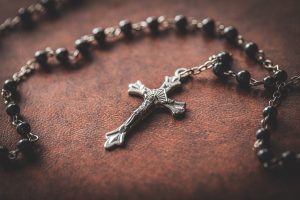Quebec’s Bill 21: diversity at the whim of the state
What does Bill 21 say to educators, students and their families? Diversity and acceptance are highly conditional qualities from a state that seeks to define itself on the backs of minority groups.
In April this year, Premier François Legault got some good news and some bad news – the Quebec Superior Court handed down a decision on Bill 21, Quebec’s secular law. On one hand it upheld his Coalition Avenir Quebec (CAQ) government’s right to use the “notwithstanding clause” (Section 33 of Canada’s Charter of Rights and Freedoms) to ban religious dress for public sector workers. On the other hand, Superior Court Justice Marc-Andre Blanchard ruled that the ban doesn’t apply to English language schools.
It’s no surprise that Quebec Justice Minister Simon Jolin-Barrette announced that the province will appeal the ruling, proclaiming: “There’s only one state here in Quebec, there’s only one law that applies for everybody.” You don’t want inconsistency when you override Canadian Charter rights.
Bill 21, “An Act Respecting the Laicity of the State.” was passed into law in June of 2019 over vigorous opposition from minority groups and civil rights organizations. The law bars public sector workers in position of authority from wearing any religious symbols – “clothing, a symbol, jewelry, an adornment, an accessory or headwear, that (1) is worn in connection with a religious conviction or belief; or (2) is reasonably considered as referring to a religious affiliation.”
It covers a wide range of people considered to be in positions of authority including justices of the peace, lawyers acting on government business, police, notaries and of course, teachers, vice-principals and principals. To preserve laïcité, the lay character of the state, the law stipulates that people leave their faces uncovered if they work for or receive services from Quebec government departments, municipalities (with the exception of certain Indigenous communities), school boards and so on. That includes doctors, dentists and midwives for instance, practising in a government-funded place.
No safety or security issues prompted the legislation. As Bill 21 explained, its purpose is to preserve: “the separation of State and religions, the religious neutrality of the State, the equality of all citizens, and freedom of conscience and freedom of religion.” That claim is starkly ironic in light of the human rights arguments about what the law actually does to many of Quebec’s citizens.
Opposition
Some of those citizens sued the Quebec government because they believed the law curtailed basic rights available to other Canadians. They argued that it violated gender equality, since women wearing a veil, for instance, wouldn’t be able to exercise their right to vote – a service such as being handed a ballot would be unlawful. Bill 21, others argued, infringed on freedom of religion, conscience and expression. It violated the right to freely exercise religion going back to the Quebec Act of 1774. It exceeded provincial powers, placing individuals under some threat of consequence as it did so.
They raised the issue of a grandfather clause that enables people to continue wearing their religious symbols if they did so before the law was passed in June 2019. But if they change jobs, leave the workforce, then return looking for their old job back or seek promotion – they’re out of luck. They have to comply with Bill 21 and remove their religious attire.
People like teacher Amrit Kaur, who don’t fall under the grandfather clause have chosen to work elsewhere. In an affidavit to the Quebec Superior Court hearing the case. Ms. Kaur said, as a Sikh woman: “ I cannot just practice my faith part-time. I cannot choose to stop following my religion unless I say that I do not want to follow my faith anymore. My religion is part of who I am, as much as being a woman. The Government cannot tell me how to practice my religion — only I can make that decision.”
Quebec Superior Court response
The Quebec Superior Court agreed with many of the plaintiffs’ key arguments: “…there is no doubt that Law 21 aims to prevent legitimate expression of a religious belief;” because of sanctions levied for those who don’t go along with it. It said “…Law 21 has a threatening aspect” due to those sanctions. It questioned the law’s power to invade people’s privacy and guarantees against “unreasonable searches or seizures” from Section 8 of the Canadian Charter of Rights and Freedoms. It went further, expressing concerns about someone’s right to participate in the rule of law such as the right to assistance of a lawyer, even to habeas corpus a fundamental requirement of the state to produce evidence of wrongdoing before levying a consequence.

Nonetheless, deferring to the “notwithstanding clause”, the Superior Court ruled that Bill 21 stood mostly intact. It ruled the Quebec government could indeed override freedom of conscience and religion as well as freedom of thought, belief, opinion and expression. The stone in the Legault government’s shoe is that the Court ruled in favour of the Montreal English School Board, enabling it to honour people’s rights to wear religious symbols and clothing because Bill 21 violates minority language charter rights not covered by the “notwithstanding clause.”
Notwithstanding this ruling, the Montreal board can’t hire teachers who wear turbans, veils, hijabs and other religious symbols because Quebec is appealing the decision.
QPAT: Bill 21 addresses an imaginary problem
Heidi Yetman is the head of Quebec Provincial Association of Teachers (QPAT) representing 8 000 English language teachers across the province. It has supported members, in particular Muslim women on Isle de Montreal, where she said many students protested Bill 21 when it passed in June 2019. She sees differences in views between teachers in Montreal as opposed to elsewhere – overall 64 percent of Quebeckers were in favour of the bill (Angus Reid poll May 2019). Interestingly – the same poll showed a division over what could be considered acceptable religious symbols in Quebec, with the crucifix ranking at the top (57percent) and burka at the bottom (5 percent).
Ms. Yetman points to differences within Montreal schools. Some of them have half and half enrolment- where both English and French language kids share the same school. Perversely, this otherwise unifying situation, means that half of the teachers can wear their religious symbols while the other half can’t.
QPAT’s brief on Bill 21 argued that the Legault government addressed an imaginary problem – with no evidence- that educators wearing religious attire might be proselytizing on behalf of their faith. The shaky ground of that argument, it said, was illustrated by use of the “notwithstanding clause” – an admission that the new law wouldn’t pass the Charter’s smell test on basic human rights. As far as teachers and really other people in positions of authority are concerned, QPAT’s brief speaks to the arbitrary and dictatorial intent of the law:
Implicitly, the government appears to be saying that teachers who wear religious symbols are not worthy of trust or are not able to provide neutral, professional instruction because of the way they are dressed. QPAT believes neutrality derives from a state of mind and a state of being; in other words, on how the public service is dispensed, not on how the person dispensing it is dressed.
One teachers’ story
Nadia Naqvi has been a science teacher since 2006 with the Lester B Pearson School Board in Montreal. Her parents emigrated to Canada from Pakistan in the late 1970s and Ms. Naqvi was born here. Science is her forte′ she says and she loves teaching. She’s clear about her identity: she is Canadian – not Pakistani-Canadian – though being referred to as Muslim-Canadian is alright because Muslim is part of who she is.
There is no fixed date for the genesis of Bill 21, but Ms. Naqvi thinks things started to change around 2002-08, the time of the “reasonable accommodations” debate over what lengths the Quebec government should go to adapt to needs of religious minorities – like offering places for Muslims to pray during the day. The “ill-will” began around then, she thinks, with “nasty stories about Muslims.” Language politics around the primacy of French has been around for ages, but the debates around religious accommodations “opened the door to normalizing the othering of people.”
This struck home with her in 2013 when the Parti Quebecois (PQ) government introduced the Quebec Charter of Values which proposed many of the same restrictions on the same people as Bill 21. It was dropped after the PQ was defeated over it in 2014. Ms. Naqvi says that’s when she knew there was “systemic discrimination at work.”
Ms. Naqvi chooses to wear a hijab and speaks to assumptions that women like her are outsiders: “We are not oppressed because we are not stupid; we have our own brains… When you otherize a community you dehumanize them so you don’t think of them as having their own free will. They’re just dumb.”
Since Bill 21 was introduced in 2018, Ms. Naqvi has been speaking and demonstrating against it. “The government is asking teachers to choose between different parts of their identity. And while they think that we are ‘converting the students’ we’re not.”
She is the co-founder and President of the Quebec Council of Muslim Teachers (QCMT) and works with others affected by Bill 21. As things stand now, despite a shortage of teachers brought on by COVID-19, the local English school board is still not hiring teachers who wear religious symbols, because the ban is in practical effect until the Quebec government is finished with its challenge against the Superior Court’s ruling. Personally, she falls under the grandfather clause – allowed to wear her religious attire – but unlike colleagues, is stuck professionally, since she can’t start a new job or be promoted unless she takes off her hijab. It puts her in a separate class.
 The way Nadia Naqvi sees it, Bill 21 itself – not the ruling in favour of English schools- has fostered more division in Quebec. She sees the law as discrimination largely against Muslims, in particular Muslim women who are seen as making a political statement by wearing hijabs. She worries that the trouble surrounding Bill 21 has opened up “a can of racist worms,” in which Muslim women are targeted because of what they wear. Muslim teachers, she says have been verbally attacked. Parents have sent letters to administrators asking that their children not be assigned to a class lead by a Muslim teacher; this even happened to a kindergarten teacher with 30 years-experience.
The way Nadia Naqvi sees it, Bill 21 itself – not the ruling in favour of English schools- has fostered more division in Quebec. She sees the law as discrimination largely against Muslims, in particular Muslim women who are seen as making a political statement by wearing hijabs. She worries that the trouble surrounding Bill 21 has opened up “a can of racist worms,” in which Muslim women are targeted because of what they wear. Muslim teachers, she says have been verbally attacked. Parents have sent letters to administrators asking that their children not be assigned to a class lead by a Muslim teacher; this even happened to a kindergarten teacher with 30 years-experience.
Bill 21 shows girls in hijabs that there is no one who looks like them in a position of authority, no model to look up to, Ms. Naqvi says. She believes it has already ruined dreams of Muslim girls who might want to become police officers or teachers, for example, but don’t see a future there: “It’s not good for our future generations to give them the wrong message.”
She fears that a law which sets a standard based in discrimination will just embolden teachers who already have some racist tendencies: “It opens the door to racial bullying,” something she’s experienced herself at her school. She tried dealing with it herself, but it only caused more friction amongst colleagues who saw her as a trouble maker.
As for the future, Ms. Naqvi has colleagues in the French system who don’t plan to leave their jobs and don’t plan to take off their religious symbols. It’s certainly not clear what extent school boards will go to enforce the rule. There are further appeals of Bill 21. The “notwithstanding clause” only has a five-year life span before it must be debated again. Then there’s the possibility that CAQ might get voted out of office in the meantime.
What’s really being taught
The supporters of Bill 21 are saying to students, educators and others: Learn that everything people say about diversity, accommodation, acceptance – even basic consideration – is completely at the whim of a Quebec that promotes itself as a nation, driven by a narrow concept of what that means. Any notion of fundamental rights, shared by other Canadians, is transitory because those rights can easily be set aside.
The Legault government and those who support Bill 21, may not like the look of people wearing hijabs, niqabs, turbans, dastars, kirpans, karas, yarmulkes, shtreimels, gartels, sheitels, crucifixes, habits, collars, or modest clothes, to name some of the garments offending its sense of laïcité. Perhaps they bridle at the challenge to their sense of order, to their idea of what their culture ought to be. Whatever the case, the law teaches children who is in charge: If you come from a religiously observant family don’t expect to see anyone like you in a place of authority.
There’s another lesson: a state that wants to promote the idea of its cultural ascendancy needs “others,” people who don’t go along, who look or act somewhat differently – to be made an example of, controlled, set outside. It needs them as an example of the kind of activity that is not Québécois – not in line with its idea of nationhood. This hearkens back to former PQ leader Jacques Parizeau’s bitter comment on the night in 1995 when the referendum on sovereignty failed to pass, that it was defeated “par l’argent et des votes ethniques.” Bill 21, more than anything seeks to bolster the nation of Quebec, by making sure these “ethniques” fall in line. If compliance with this law is the key to fully participate in society, that’s an awfully dangerous lesson to learn.


